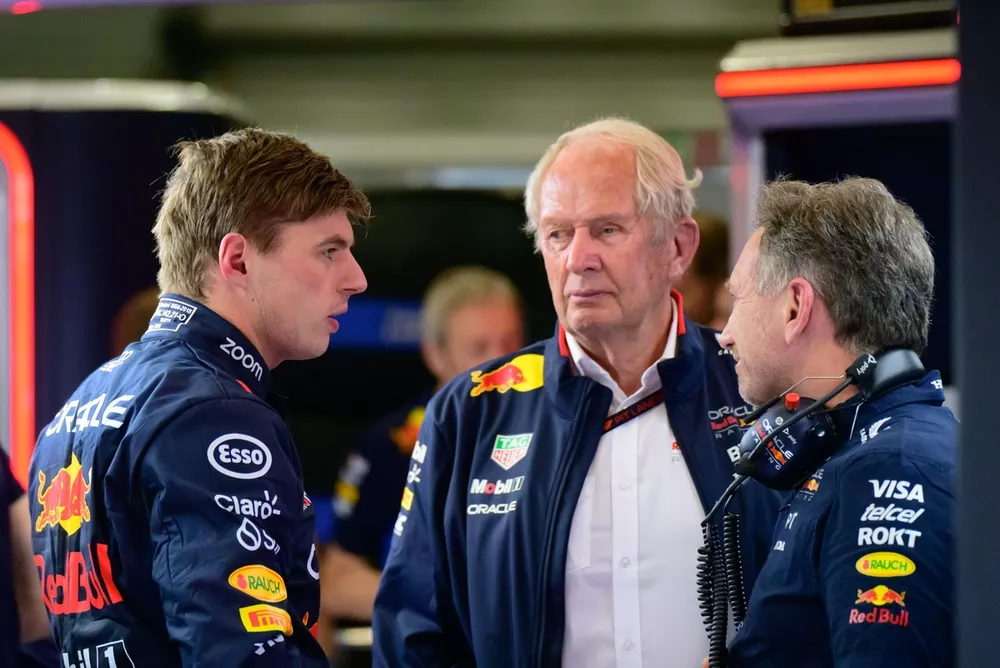
Following a summer filled with high expectations and continuous rumors, the 2024 Formula 1 season has seen a significant shift in dynamics as the transfer window draws to a close this Friday.
Despite a busy off-season, Red Bull Racing and its star driver, Max Verstappen, are facing an unexpected challenge. After a dominant period, the team finds itself needing to reassess and adapt if it wishes to maintain its competitive edge.
For the first time since the Dutch Grand Prix joined the Formula 1 calendar in 2021, Max Verstappen, known for his exceptional performance at his home race, faced a humbling defeat. The Zandvoort circuit, which had become a fortress for Verstappen, saw him outpaced by McLaren’s Lando Norris in both qualifying and the race. Norris not only secured pole position but also delivered a commanding performance on race day, finishing 22.9 seconds ahead of Verstappen. This result marked a notable shift in the season’s competitive landscape.
McLaren’s resurgence has been impressive, with the team overcoming a series of challenges to deliver strong performances. Their success is partly attributed to the significant upgrades introduced in Miami and Budapest, which have significantly improved their aerodynamic efficiency. In contrast, Red Bull has struggled to match their previous performance levels. The team had to revert some of the updates from the Hungarian Grand Prix, and technical director Pierre Wache admitted that the RB20 might have reached its performance ceiling for the season.
Verstappen has been vocal about his frustrations with Red Bull’s performance in recent months. His criticism, both public and private, has been directed at the team’s inability to extract more from the RB20 and keep pace with the evolving competition. Speaking candidly in Austria, Verstappen highlighted the need for constant improvement and adaptation in the face of growing competition. His concerns were validated when McLaren’s advancements allowed Norris to outpace him by a significant margin.
The recent events at Zandvoort reflect a broader trend of diminishing returns for Red Bull. The team’s struggles were exacerbated by their choice of a higher-downforce strategy at Zandvoort, which did not yield the expected results. The limited dry running during practice meant that Red Bull’s gamble did not pay off, leaving Verstappen vulnerable to Norris’s superior pace. The mismatch in tire degradation expectations further compounded the issue, with Red Bull overcompensating and affecting their overall performance.
Verstappen’s reaction to his defeat was notably composed, a sign of his maturity and focus on the championship. Instead of allowing frustration to derail his race, he adopted a management approach, aiming to secure the best possible result under the circumstances. Verstappen’s ability to adapt and maintain a level-headed approach is crucial as he continues to vie for his fourth world championship. Christian Horner, Red Bull’s team principal, praised Verstappen’s maturity, acknowledging that while the 22-second deficit was significant, it was a result of factors that the team needs to address promptly.

The key question for Red Bull is how they can reverse their fortunes and close the gap to their competitors. With only nine races remaining in the season, the pressure is on to address the issues and regain their competitive edge. Red Bull must focus on optimizing their car’s performance and avoiding the pitfalls that have plagued them in recent races. The team’s split package approach has provided some insights into the car’s balance issues, but there is no immediate fix that can guarantee a turnaround.
Horner’s perspective on the situation is pragmatic. He acknowledges the challenge ahead but emphasizes the team’s experience in handling championship fights. The key for Red Bull will be to harness their expertise and resilience to mount a strong defense of their current positions in both the drivers’ and constructors’ championships. The pressure is indeed high, but Red Bull’s history of overcoming adversity in the sport provides a foundation for their fightback.
In the broader context of the 2024 season, Red Bull’s struggles highlight the intense competition within Formula 1. The emergence of McLaren as a formidable rival demonstrates the dynamic nature of the sport, where no team can afford to rest on its laurels. The battle for supremacy is fierce, with multiple teams vying for top positions and showcasing their capabilities.
As the season progresses, Red Bull’s ability to adapt and innovate will be crucial in determining their success. The team’s response to their recent setbacks will shape their trajectory for the remainder of the season. Fans and analysts alike will be watching closely to see how Red Bull and Verstappen address the challenges and whether they can regain their dominant form.
So, the recent events in Zandvoort have set the stage for an intriguing second half of the Formula 1 season. Max Verstappen’s resilience and Red Bull’s strategic adjustments will be put to the test as they aim to overcome their current difficulties and continue their pursuit of championship glory. The coming races will be pivotal in determining whether Red Bull can turn their season around and reassert their dominance in the sport.
Leave a Reply